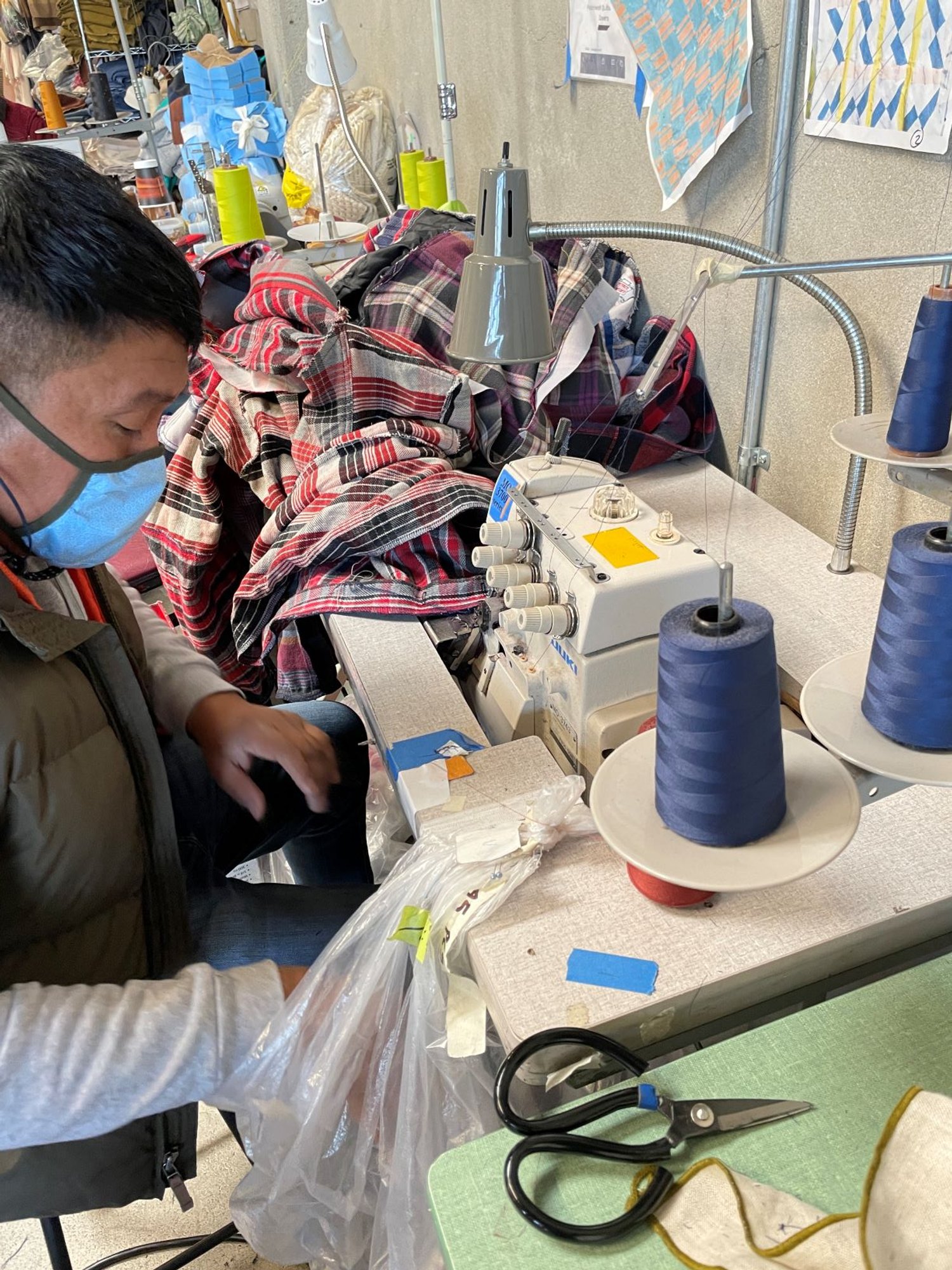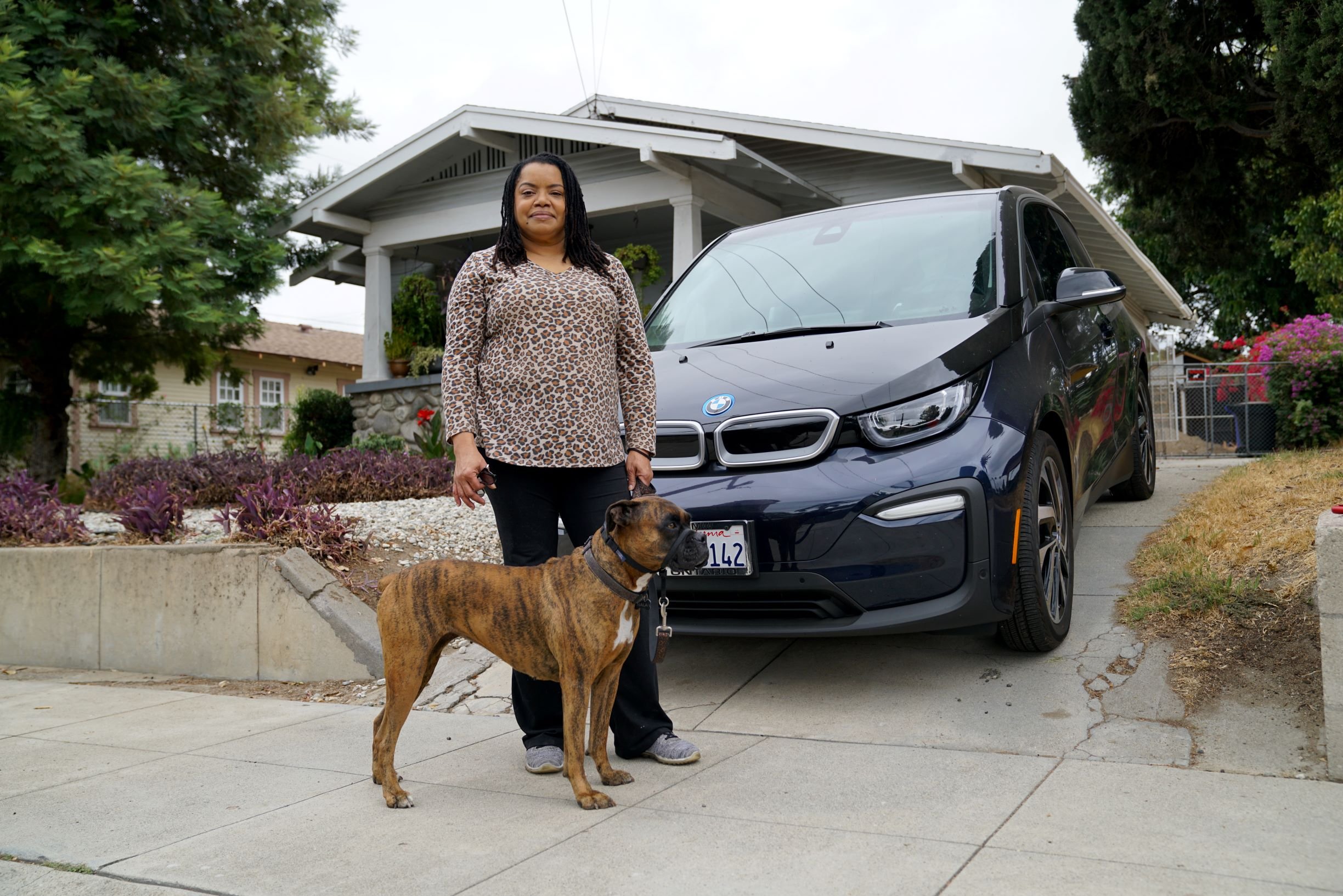Since 2015, the City of Los Angeles (LA), in partnership with the LA Department of Transportation and the Mayor’s Office, has received a total of $4.7 million from CARB’s Clean Mobility Options program for a zero‑emission car share pilot project. This project, known as BlueLA, is operating in 13 underserved communities that face significant air quality burdens and have historically been excluded from environmental benefits. BlueLA provides a clean and affordable mobility option in these communities, which include Downtown, Pico Union, West Lake, and Koreatown.
Toward Resilient California Communities: Solar + Storage Potential at Schools and Community Centers
California Strategic Growth Council
With funding from the Climate Change Research Program, PSE Healthy Energy is working with the Asian Pacific Environmental Network and Communities for a Better Environment to identify opportunities to build solar+storage resilience hubs at schools and community centers across California.
Rancho San Pedro Launches Good2Go Bikes Program
California Air Resources Board
With nearly $1 million in funds from the California Climate Investments Clean Mobility Options Voucher Pilot Program, the Los Angeles Cleantech Incubator, Housing Authority of the City of Los Angeles, and Pedal Movement are launching four e-bike hubs through Rancho San Pedro affordable housing’s shared ebike program, also known as the Good2Go Bikes program.
Omnitrans ConnecTransit Plan: Planning Public Transit in the San Bernardino Valley
California Air Resources Board
Omnitrans is working with several partners to develop a community-driven transportation plan for the public transportation system in the San Bernardino Valley. Omnitrans is the public transportation provider for the San Bernardino Valley region. The ConnecTransit Plan will identify and prioritize clean transportation improvements that address hurdles to equity and access within the Omnitrans service area and that will reduce greenhouse gas emissions. The ConnecTransit Plan will provide a blueprint for future implementation projects for which Omnitrans will seek grant funds.
Zero-Emission Transit Vehicles, New Bike Lanes, and Shade Trees In Commerce
California Air Resources Board
Thanks to over $3 million from the Sustainable Transportation Equity Project, the City of Commerce has partnered with Climate Resolve and TreePeople to provide more clean transportation options to the city’s residents. Situated in southeast Los Angeles County in an area known for its commercial and industrial operations, Commerce has a history of providing free and reliable public transit service to its residents.
TreePeople Transforms Pacoima Middle School with a Living Schoolyard
California Natural Resources Agency
TreePeople is transforming Pacoima Middle School’s asphalt schoolyard into a more green, vibrant and healthy learning space. The Pacoima Living Schoolyards Project will bring native shade trees, shrubs, pollinator gardens, and outdoor nature-based education and play areas.
New Affordable Housing Opens at Riverside's Mission Heritage Plaza
California Strategic Growth Council
72 affordable homes for families and veterans are now available in downtown Riverside. The Mission Heritage Plaza project is a partnership between Wakeland Housing and Development Corporation, the City of Riverside, and Riverside Transit Agency, working to reduce greenhouse gas emissions through transportation mode-shift and construction of affordable housing within the urban core of Riverside.
Forest Health Research Looks to Indigenous Burning Practices to Help Manage Invasive Beetle
California Department of Forestry and Fire Protection
With a $100,000 grant from CAL FIRE’s Forest Health Research Program, Joelene Tamm a master's student at UC Riverside and Squaxin Island Tribal member, is partnering with the La Jolla band Luiseño Indians to investigate how indigenous cultural burning practices and traditional ecological knowledge can be used to support management of the invasive goldspotted oak borer, an invasive beetle.
Suay: Transforming Fast Fashion through a CalRecycle Reuse Grant
California Department of Resources Recycling and Recovery
Thanks to $1,315,378 from the Recycled Fiber, Plastic and Glass Grant Program, Suay is expanding their operations diverting textiles from landfills. Suay is a closed-loop recycling operation in Los Angeles that collects used garments and cleans, repairs, and re-sews these textiles remaking them into new products. The finished products are repaired clothing and remade products, such as pillows and dog beds that use stuffing from shredded garments that could not be repaired.
California Conservation Corps Supporting San Bernardino Mountains Restoration
The California Conservation Corps (CCC), in collaboration with CAL FIRE, American Forests, and the Mojave Desert Resource Conservation District, helped plant 70,000 seedlings in the San Bernardino Mountains. Supported by $200,000 in California Climate Investments funding, the project’s goal was to re-plant an area in and around the Eaton Scout Reservation in Cedar Glen. The project is the result of interagency coordination and collaboration and helped invest in Corpsmembers from underserved areas by providing information about tree planting and reforestation and providing them with experience in the mountains to help cultivate interests in forest health.
Community-focused outreach project, Access Clean CA, helped resident in underserved community afford electric vehicle and solar panels.
Expanding Metrolink Service in Southern California
Kompogas SLO Inc. is Creating Fuel and Compost with Waste
Kompogas SLO Inc. received $3 million through the Organics Grants program to build a high-solids anaerobic digester, to be known as the Lancaster Organic Waste Facility, at the existing Lancaster Landfill and Recycling Center in Antelope Valley. With this new anaerobic digester, Kompogas SLO Inc. will be able to process residential food and green waste collected by Waste Management Inc. throughout Antelope Valley, including in the cities of Lancaster and Palmdale, and turn it into renewable natural gas and high-grade compost.
Community Outreach and Education through the Clean Air Ambassador Program
Supported by $2.4 million from a $23 million Transformative Climate Communities implementation grant, a coalition of community members, non-profits, and public-sector agencies called Green Together, is working to build a new generation of air quality ambassadors in the Pacoima and Sun Valley communities of the San Fernando Valley. The Clean Air Ambassadors Program, established as part of the Green Together Community Engagement Plan, trains community youth organizers through workshops covering air quality monitoring, health, climate change and air pollution. Through the program, ambassadors learn how to collect and interpret data using scientific tools to measure local particulate matter pollution. Ambassadors also learn how to communicate air pollution principles and advocate for data-informed clean air solutions. In 2021, the Clean Air Ambassadors Program hosted its inaugural class of youth leaders.
A Multi-Faceted Approach to Addressing Community-Identified Transportation Needs
The Sustainable Transportation Equity Project (STEP) is designed to increase transportation equity in disadvantaged and low-income communities by funding planning and clean transportation projects and directly engaging community residents in clean transportation solutions. STEP achieves this via two grant types: Implementation Grants and Planning and Capacity Building Grants. Paid for by Cap-and-Trade dollars, the grants ultimately will help people get where they need to go — be it the doctor’s office or daycare — without using a personal vehicle.
Advancing Ecological, Cultural, and Community Resilience with Tribal Nations in Southern California
With a $990,350 award from the Climate Change Research Program, the Resilient Restoration project – led by the Climate Science Alliance Tribal Working Group, University of California Riverside, and San Diego State University – is promoting Tribal resilience by developing knowledge and supporting actions that enhance persistence of cultural practices with a focus on preserving the ecosystems and species that are integral to Tribal communities.
New Community Composting Program Sequesters Carbon While Providing Local-Level Benefits
The California Alliance for Community Composting (Alliance)is helping community groups develop or expand 50 community composting sites in disadvantaged and low-income communities across California using funds from the Community Composting for Green Spaces Grant Program. Altogether, these sites are expected to prevent nearly 11,000 tons of organic waste from going to landfills by creating compost, which prevents the release of greenhouse gases during its decomposition. The Alliance’s work will also provide communities with additional benefits, including free compost, job training, and more.
Long Beach Urban Wood Recovery Apprenticeship Program Prepares Youth for the Future Workforce
Funded in part by a nearly $1,000,000 grant from California Department of Forestry and Fire Protection’s Urban and Community Forestry Program, the Conservation Corps of Long Beach (CCLB) is implementing an urban wood recovery apprenticeship program that has the potential to be a model for other programs across California. This program is teaching Corpsmembers how to remove hazardous trees throughout the city, control insects and diseases, and divert woody biomass from landfills to help keep greenhouse gases sequestered in the wood. Additionally, trees will be replaced to mitigate poor air quality, a lack of urban green space, and improve storm water retention in disadvantaged communities. Ultimately, this program will provide a foundation for Corpsmembers interested pursuing jobs in urban forestry.
Next-generation Refrigeration in New Stater Bros. Markets Grocery Store
Thanks to $50,000 from the California Air Resources Board’s Fluorinated Gas Reduction Incentive Program, Stater Bros. Markets installed a climate-friendly refrigeration system at a new supermarket in Whittier that will result in a reduction of greenhouse gas emissions that is the equivalent to taking more than 1,000 vehicles off the road for one year. Since refrigerants are among the fastest growing climate pollutants worldwide it is important to have projects like this one to demonstrate that transitioning the grocery sector toward cleaner refrigerants is an effective strategy for mitigating climate change.
Zero-Emission Technology at Ports Provide Cleaner Air for Vulnerable Residents
The adjacent ports of Long Beach and Los Angeles combined are the largest fixed sources of air pollution in the South Coast Air Basin, one of the most polluted air basins in the United States, in large part because the trucks and equipment used at the ports burn diesel fuel. Recognizing this, the Sustainable Terminals Accelerating Regional Transformation demonstration project was awarded $50 million to replace trucks and equipment with zero‑emission technology. The funding, which comes from California Climate Investments, supports the deployment of 102 pieces of zero‑emission terminal equipment and trucks at seaports across California, including at the ports of Los Angeles and Long Beach. These funds are also supporting the development of new, cleaner tugboats; the deployment of two container vessels with cleaner‑burning engines; and advanced workforce development programs to support sustainable goods movement across California.





















